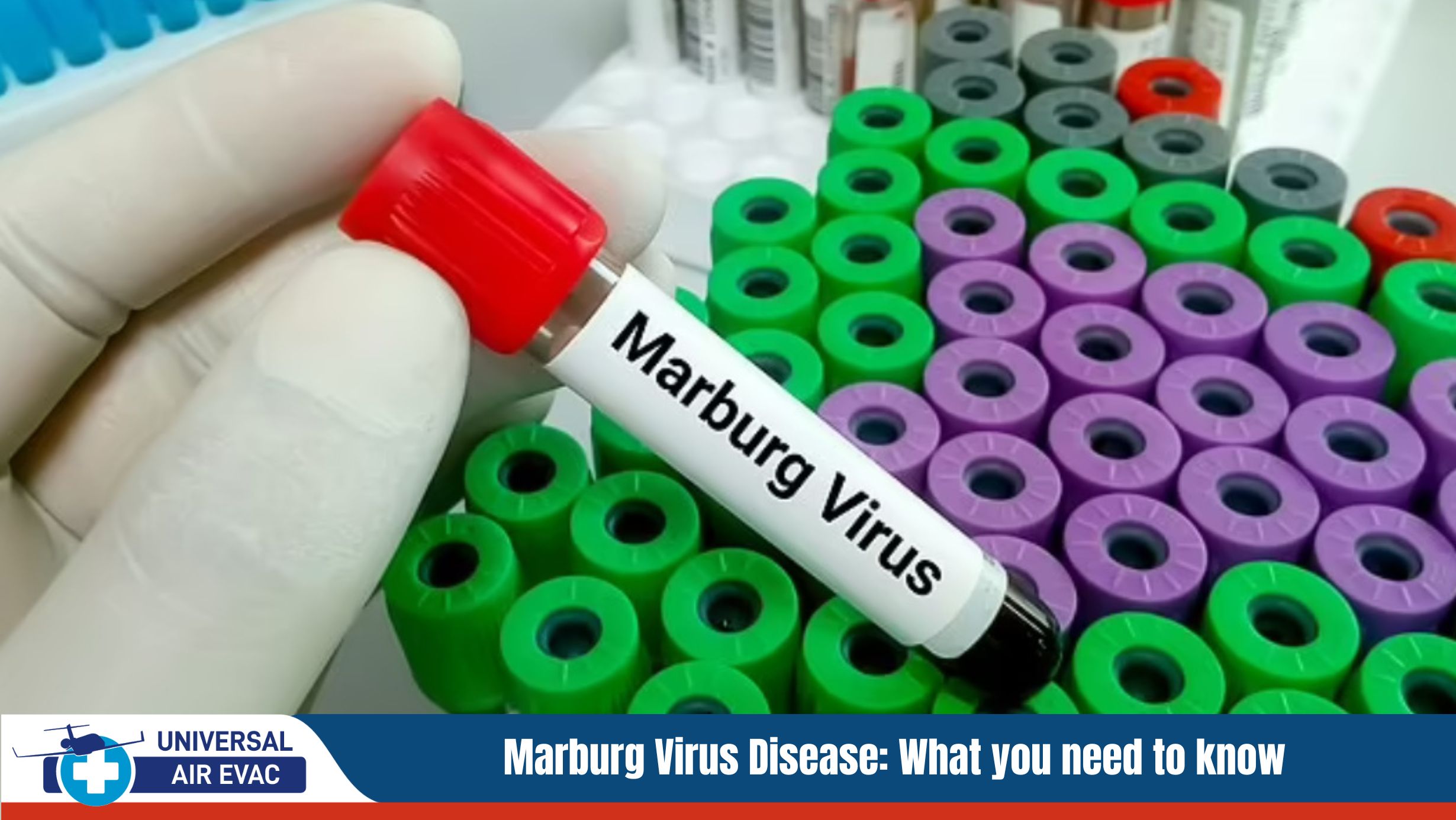Understanding Marburg Virus Disease: What You Need to Know

In October, Rwanda reported that it was facing a significant public health challenge with a reported 62 cases of Marburg virus disease (MVD). This unfortunately led to 15 deaths and put the entire country on alert for this highly contagious and historically dangerous disease. The situation is serious, and proactive measures are essential.
Recent news, however, shows significant improvement, indicating that the virus outbreak is experiencing an unusually low fatality rate for what is typically a highly fatal and widespread disease. With a case fatality rate (CFR) of 24.2% and 43 recoveries from the disease, the news has been better than expected.
Despite this positive update, Universal Air Evac emphasises the importance of education about this disease, especially for those in or travelling to affected areas. While the region appears to be improving, travellers still need to be informed about the disease and the precautions to take. Here’s what you need to know.
What is Marburg Virus Disease?
Marburg virus disease is a severe and often fatal illness caused by the Marburg virus, a member of the Filoviridae family, which also includes the Ebola virus. The virus is transmitted to humans from fruit bats and spreads through direct contact with bodily fluids of infected individuals, including blood, saliva, and sweat.
Symptoms to Watch For
Symptoms of Marburg virus disease typically appear suddenly and can include:
- Fever: Often one of the first signs, usually high.
- Headache: Severe and persistent.
- Muscle pain: Often debilitating.
- Vomiting: Can be profuse, often accompanied by blood.
- Diarrhoea: Severe and potentially bloody.
- Abdominal pain: This may be significant.
- Rash: Can develop within 5-7 days after symptoms begin.
- Symptoms of severe illness: Such as organ failure, which can occur in advanced stages.
If you or someone you know experiences these symptoms, especially after possible exposure to an infected individual, it’s crucial to seek medical attention immediately.
Protecting Yourself and Others
Prevention is key in controlling the spread of Marburg virus disease. Here are steps you can take:
- Avoid Contact: Stay away from individuals showing symptoms of the virus and avoid handling the bodies of those who have died from the disease.
- Practise Good Hygiene: Wash hands frequently with soap and water or use hand sanitiser containing at least 60% alcohol.
- Wear Protective Gear: If you are in a healthcare setting, ensure proper personal protective equipment (PPE) is worn.
- Limit Travel to Affected Areas: If possible, avoid regions experiencing outbreaks until the situation is resolved.
What to Do If You Think You've Been in Contact
If you suspect you’ve been in contact with someone infected with the Marburg virus:
- Isolate Yourself: Stay away from others to prevent potential spread.
- Monitor Symptoms: Keep an eye on any developing symptoms.
- Contact Health Authorities: Reach out to local health officials or healthcare providers for guidance and possible testing.
Limitations of Repatriation Services
It’s important to note that organisations like Universal Air Evac are unable to repatriate individuals already infected with the Marburg virus. This is due to:
- Risk of Transmission: Contact with infected individuals poses a significant risk to medical personnel and flight crew.
- Legal and Regulatory Barriers: Entry into new countries often involves strict health regulations that can prevent the transport of infected individuals.
The Importance of Education
Understanding the Marburg virus disease, its symptoms, and how to protect yourself is essential for everyone, especially those in affected areas or who may travel there. As the situation develops in Rwanda, staying informed and vigilant can help mitigate the impact of this serious health threat.
Despite the fatality rate dropping to around 27%, it remains crucial to stay highly aware of the situation. The improvement in recovery rates can be partly attributed to increased public health spending, investment in medical training, and the construction of modern hospitals with well-equipped intensive care units. Rwanda, in particular, had prepared critical care capacity to manage severe diseases like Marburg, a level of preparedness that was previously absent. This has become an important consideration for travellers and us at Universal Air Evac.
For more information and updates, stay informed by following health authorities and trusted organisations like Universal Air Evac.
Together, we can navigate these challenges with knowledge and preparedness.

